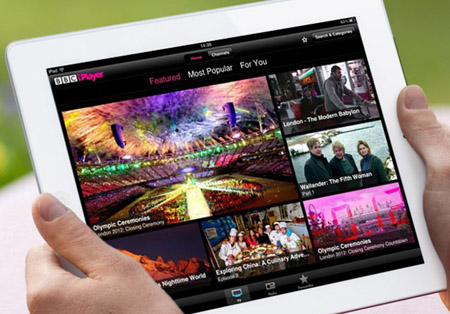BBC Director General Tony Hall has said that the BBC iPlayer will be reinvented in a bid to make it the UKs top online TV service by 2020. He described iPlayer as “the biggest revolution of the last charter” and said it now had to increase its reach. “We need it to make the leap […]
 BBC Director General Tony Hall has said that the BBC iPlayer will be reinvented in a bid to make it the UKs top online TV service by 2020.
BBC Director General Tony Hall has said that the BBC iPlayer will be reinvented in a bid to make it the UKs top online TV service by 2020.
He described iPlayer as “the biggest revolution of the last charter” and said it now had to increase its reach.
“We need it to make the leap from a catch-up service to a must-visit destination in its own right,” he said.
The BBC reaches its centenary year in 2022, by which point Hall says the service will be completely transformed. The online portal plans to take on rivals Netflix and Amazon to claim top spot in the UK VOD space. In an attempt to do so, the broadcaster will consider adding more relevant content and entire series to the service before they are screened on TV.
While content is the key to attract viewer numbers, the service must be technically robust to keep those numbers.
Hall said the BBC must pioneer new technology if it is to remain a global leader and develop new ways of personalising services for viewers as well as how it can embrace developments in artificial intelligence and voice recognition.
Tom Williams, Chief Executive at Ostmodern reacted to Halls statement to say that there is no single formula for success in the VOD world, considering the growing competition.
BBC iPlayer is a great example of the success broadcasters can find in VoD. Putting new content online first is a logical next step, but theres already a huge amount of TV content out there. Between traditional broadcasters, streaming services, and other players that are jumping on the bandwagon, its become a very complicated and competitive market. Giving viewers more control over what they want to watch and putting out entire series in one go is sometimes effective, but isnt always necessarily helpful without the right approach to manage this.
He added that there is still value in linear TV and most of the viewers (barring the millennials) are used to watching well curated and edited programmes. Most of us above a certain age have grown up with television in a linear format.
Weve relied on editorial teams, who have developed a particular experience, to curate and schedule programmes for us. Opening up all content and expecting viewers to take the place of curators themselves is sometimes just too high a barrier for those viewers to become more engaged in VOD, he commented.
Emphasising the role of strong editorial and well-executed workflows for VOD content to keep the viewers interested beyond the initial Euphoria of joining something new, he said: All of this points to the need for greater curation, together with a better approach to how we manage VOD services, to take into account the real-world factors which have an impact on what we choose to watch. Consider, for example, how a flexible VOD product could have responded to the number of captivating global events in 2016, stitching together archived films, interviews, news content, and discussions about that event in a way that was timely and engaging for viewers.















































































